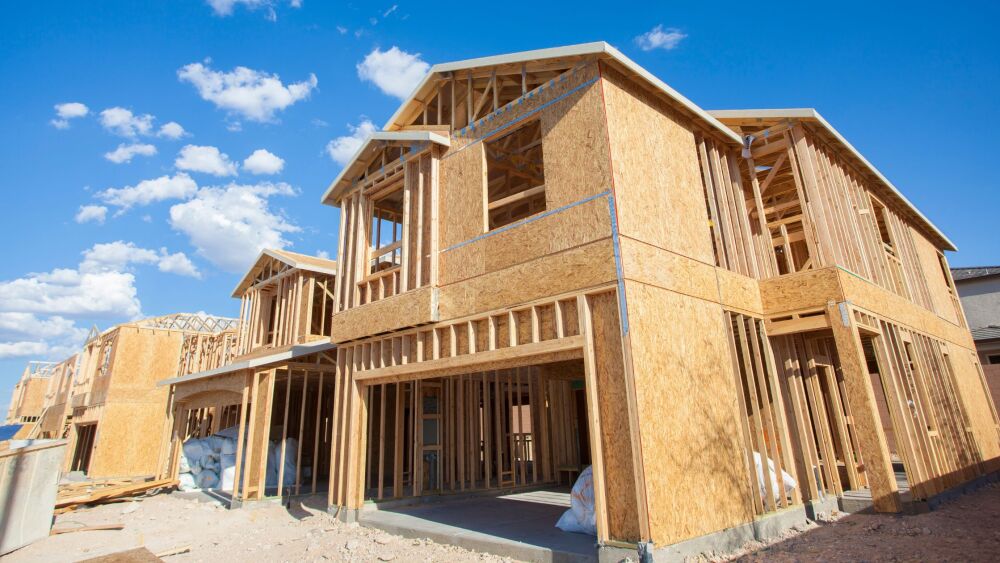With interest rates higher than they have been for the previous years, new construction may be the answer for some home buyers. Builders across Colorado are offering interest rate buydowns and are paying a hefty amount of Buyer’s closing costs. With new construction inventory 2X higher than the average, Buyers may have more negotiating room than they did in the past. But buying from a builder is a different ball game and it’s important you know how to play. Consider these questions to determine if new construction is a good fit for you.
Should you use a real estate agent?
Absolutely! The builder may have sales agents or an assistant that helps buyer’s through the process, but they represent the builder. It’s always a good idea to have a professional advocating for you and most builders will pay agents a commission for bringing the buyer. Plus, since builders draft their own contracts, it is important to have a knowledgeable professional review the purchase contract for any red flags before signing on the dotted line.
Does the builder have a good reputation?
We’ve all heard stories of builders who fail to deliver on their promises, using lower grade materials than quoted, or even disappearing before the work is completed. Check out your builder before signing anything. Find out if there are any complaints registered against them and ask for references from other homeowners. Find out if you can tour a model or a recently completed home, and bring someone who can judge the quality of the workmanship.
Should you use the builder’s lender?
Many builders work with a preferred lender that offers attractive discounts on closing costs when you finance through them. It’s important to know if the lender is working as a referral or if the mortgage company is owned by the same company that is building your home. If your lender and builder both work for the same company, it’s a good idea to have an attorney or real estate agent review your contracts as an independent set of eyes.
What are the deed restrictions and is there an HOA?
Developers usually file a subdivision’s restrictive covenants when applying for approval to build the development. Any persons buying property in the development are bound to abide by these restrictions. You can get a copy of the deed restrictions from the builder. Also ask if there is, or will be, a homeowner’s association, what the HOA fees will be and what they cover.
Can the builder charge extra for unexpected cost increases?
Look over the builder’s contract carefully, or have your agent or an attorney do so. Note if there is an escalation clause that would allow the builder to pass cost increases onto you in the event that materials or labor costs increase during construction.
What warranties are provided?
Normally a builder offers a warranty lasting from six months to two years, possibly longer for some items. You should know what is covered under the builder’s warranty and for how long. All the major structural items and mechanical systems are usually covered. Appliances are not, but they should come with a manufacturer’s warranty. Damage from weather, shrinkage or expansion of the home or foundation, and anything resulting from the homeowner’s failure to provide maintenance or from work done on the home after construction is not covered.
What is the timeline for completion?
This will depend on whether the build is a production home, meaning the builder is building select models throughout a development, or if you have hired the builder to build a custom home. Production homes can be completed in four to seven months, where custom homes usually take a minimum of 12 months. Regardless, the builder should be able to give you a timeline outlining each phase of construction. Factors affecting the timeline include weather, delays receiving building supplies, or the number of changes you make along the way.
Can you choose different finishes or colors?
Again, it depends on the type of build and the builder. Certainly, if you are building a custom home, you can make as many changes as you are willing to pay for. But if the home is part of a development and the builder has color palettes and finishes chosen, there may be a limit to how much you can change. Often the builder will allow you to change paint colors, flooring, fixtures, tile or appliances, as long as what you choose is in line with the budget they set, and those items have not already been ordered.
What’s included?
It is not fun to get to the end of construction and find out you still need to add landscaping, fencing, appliances or window coverings. Some builders offer these items as move-in packages for an additional cost or as an incentive to get you across the finish line. Don’t be blindsided by not knowing your refrigerator, blinds or backyard landscaping is not included in the purchase price.
Have questions about a specific builder or community? I specialize in new construction home sales and have strong relationships with the local builders. PLUS I get weekly updates from my contacts on their new incentives and inventory. I would be happy to answer any of your questions and discuss what communities best suit your needs!
Ready to start checking out new communities and reviewing floorplans? Click here!

